

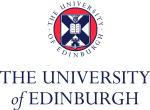
Theme
Social Networking
Category
Resources
INSTITUTION
The University of Edinburgh (Clinical Surgery and the Learning Technology Section)

Peer-assessment of student contributions to discussion boards improves with increasing experience. Contrary to our expectations, the introduction of peer-assessment did not increase student participation in the discussion boards.
Peer-assessment has the potential to enhance learning, engaging students more actively with course content and the criteria for assessing such content, and promoting skills in critical reflection (Boud & Falchikov, 2006). Online discussion boards promote greater higher-order learning than face-to-face dialogue since students have more time to reflect upon and research their responses (Blanchette, 2001). Furthermore, discussion boards create an interactive online community which can reduce feelings of isolation associated with distance learning, and contribute to increased learning and student satisfaction (Rovai, 2002). However, it is possible for some students to adopt the role of "lurker", in that they view the discussions posted by others but do not themselves participate.
In this study the reliability of peer-assessment of online discussion boards, and its impact on student participation, was examined in a student cohort of junior surgical trainees.
Peer-assessment of discussion boards can be a reliable and useful exercise for ensuring students cover course material, and in developing key skills promoted in the General Medical Council guidelines on good medical practice. However, students surveyed would not support it as a replacement of expert tutor-assessment.
The online MSc in Surgical Sciences programme utilises virtual case scenarios based on common surgical conditions, underpinned by basic science content. Assessment tools include asynchronous discussion boards facilitated by expert clinical tutors (consultant surgeons or senior surgical trainees).
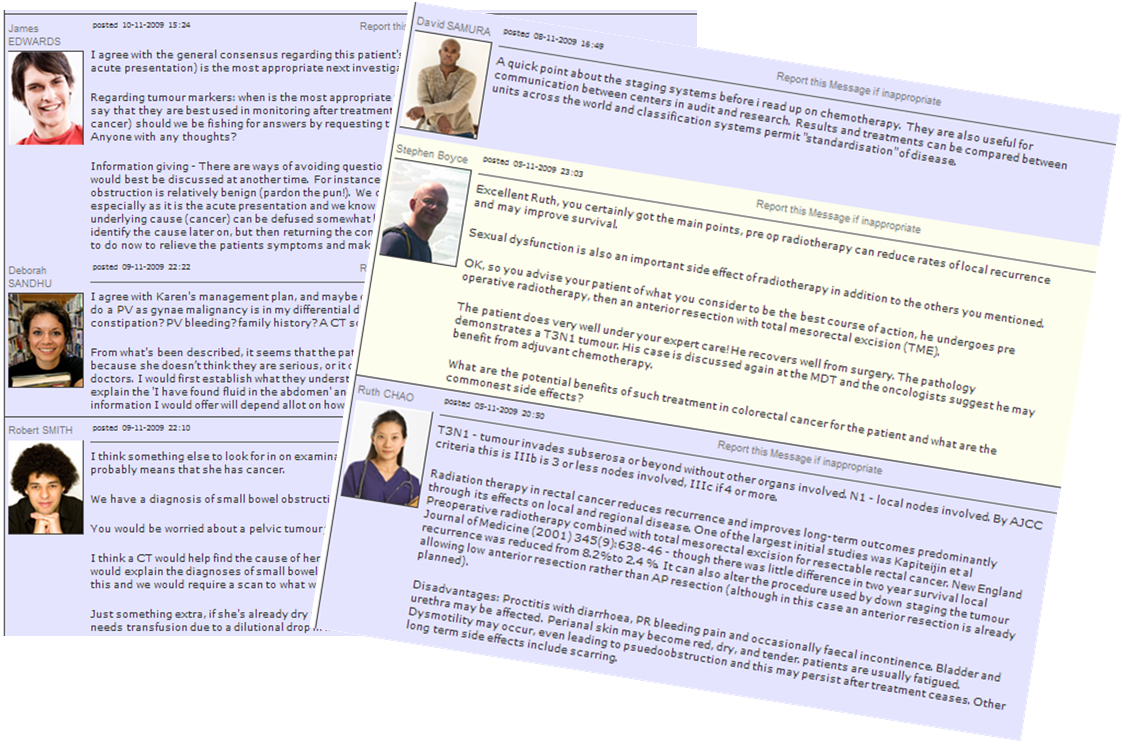
Marks awarded by students and tutors were compared for contributions to boards in Year 1 and 2 modules, to test the null hypothesis that peer-assessment is comparable to that provided by experienced e-tutors. We also hypothesised that the introduction of peer-assessment would increase student participation in online discussion boards.
Students and tutors were provided with detailed marking criteria (range 0-3, see details) at the outset, and an online anonymous questionnaire was used to gauge students’ perceptions of peer-assessment.
The MSc in Surgical Sciences programme is run in partnership with the Royal College of Surgeons of
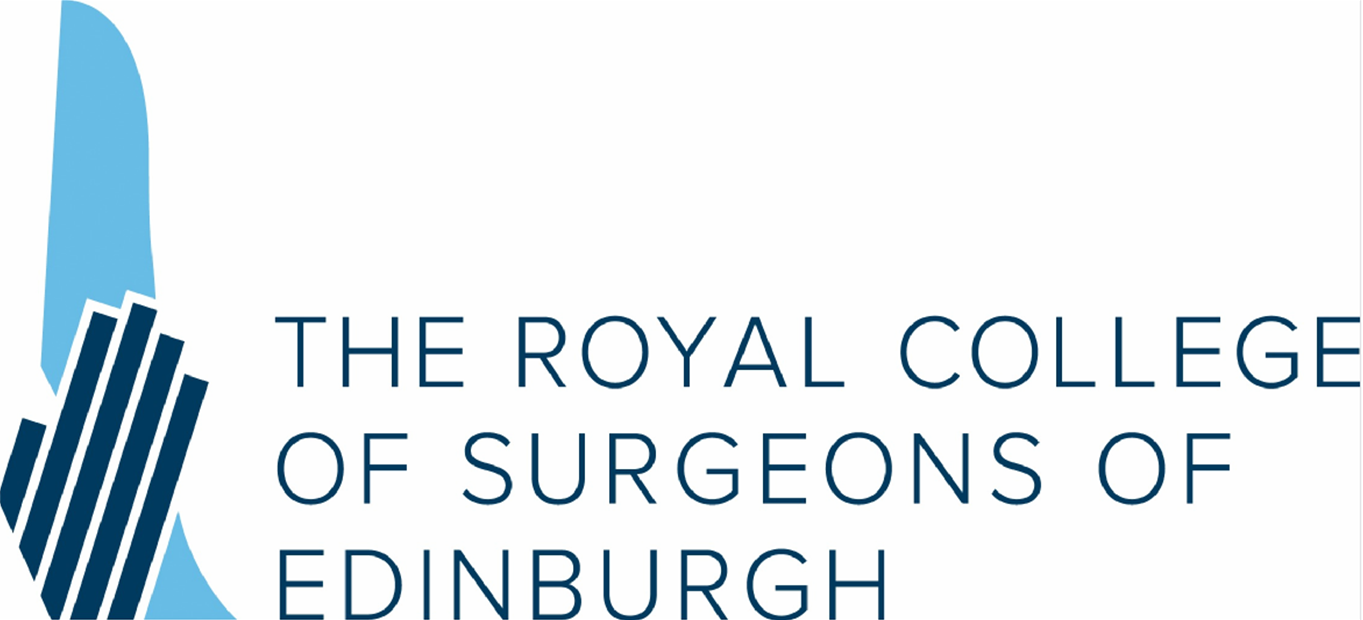
In first year boards, peer-assessment marks were consistently greater than those of tutors (P=0.02: total assessments per group = 345, by 40 students and by 32 tutors), whereas in the second year, awarded marks were similar (P=0.64: total assessments per group = 342, by 47 students and 28 tutors) (Figure 1).
.png)
Introduction of peer-assessment did not impact significantly on the frequency of student participation (Figure 2).
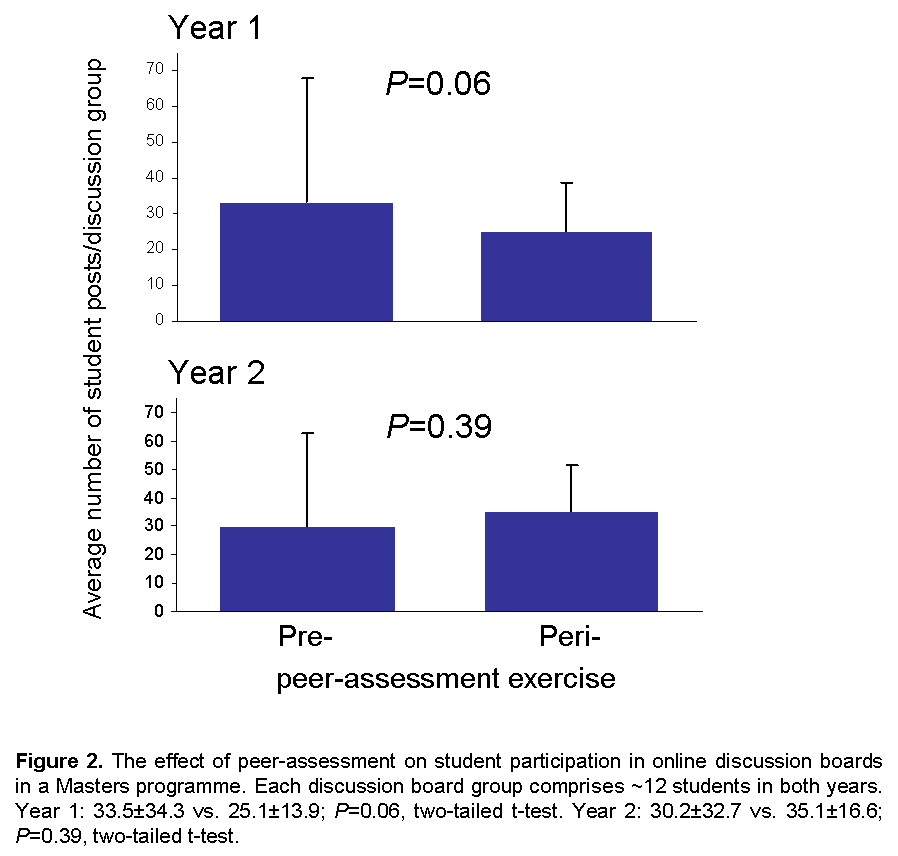
Survey results reveal that 46.5% of students believed peer-assessment was beneficial, but the majority favoured tutor feedback (88.4%) and tutor marks (62.8%) (n=43 respondents).
MSc in Surgical Sciences
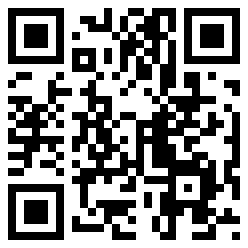
Blanchette, J. (2001) Questions in the online learning environment. The Journal of Distance Education. 16 (2), 37-57.
Boud, D. & Falchikov, N. (2006). Aligning assessment with long-term learning. Assessment & Evaluation in Higher Education. 31 (4), 399–413.
Rovai, A.P. (2002). Development of an instrument to measure classroom community. The Internet and Higher Education. 5 (3), 197-211.
 Send Email
Send Email